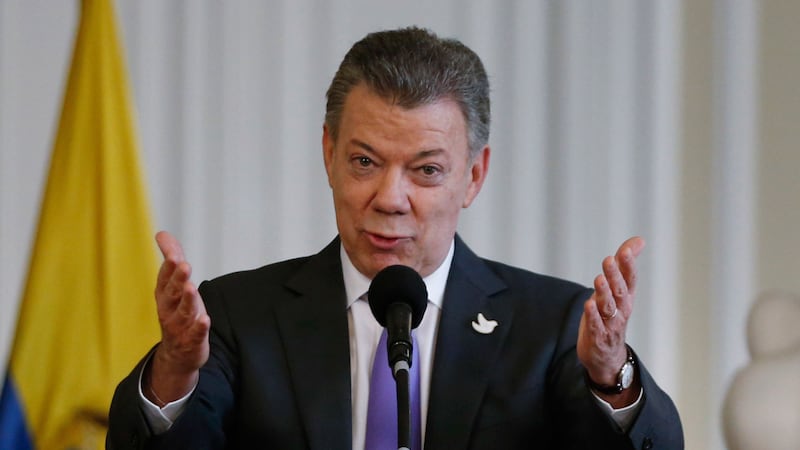WHEN the Nobel Peace Prize committee announced the winner of this year’s award, the recipient was asleep in his bed in Colombia.
In a world where we demand instant gratification, the media pressurised his staff for a reaction to the news. They refused to wake him, and just right too.
Days before the announcement, Juan Manuel Santos, architect of peace with the Farc rebels, had been snubbed by his own electorate. The Colombian people narrowly voted against the deal in a referendum, throwing the agreement into doubt.
That twist, in what should have been a story of triumph against the odds, gave added piquancy to the award. There had been speculation that Santos’s chances had been dealt a fatal blow at the ballot box.
But the Nobel committee is known for its willingness to take a punt. Barack Obama was awarded the prize less than a year after taking office. Two terms on, the committee’s optimism that his presidency would be a game changer looks fanciful.
Whatever Obama has done, he has not lived up to Nobel expectations. While his presidency is not without its plus points, he cannot be said to have advanced the cause of global peace much. We are not safer now than we were in 2009, and that is the test.
The US’s indiscriminate use of drones is a scandal. The Middle East is in turmoil with hundreds of thousands of innocent lives lost in Syria, while the increasingly fractious relationship with Russia is bringing us back to the worst days of the cold war.
Anyway, back to Colombia and President Santos. Awarding him the prize, the committee said it was in recognition of “his resolute efforts to bring the country’s more than 50-year-long civil war to an end”.
The enormity of what has been going on in Colombia can be seen in the stark statistics laid out by the Nobel committee – at least 220,000 Columbians have died in the conflict, and six million people have been displaced.
Given that, it is not surprising Santos’s opponents were able to exploit concerns the rebels were getting away with murder. On a small turnout, the referendum vote was lost on a hair’s breadth
As we have seen in Northern Ireland, it is sometimes necessary for society to collectively hold its nose in the pursuit of something greater. Accepting peace does not mean people have accepted the war that preceded it.
In recognising Santos, the Nobel committee was sensitive to the feelings of those who suffered. It said: “The award should also be seen as a tribute to the Colombian people who, despite great hardships and abuses, have not given up hope of a just peace, and to all the parties who have contributed to the peace process.”
It is easy to draw parallels between what is happening in Colombia with the process people in this part of the world have been navigating. Indeed the conflicts are linked.
You will not need a long memory to bring to mind the so-called Colombia three: republicans prosecuted for their role in training members of the Farc rebel army. And participants in the Northern Ireland peace process provided advice to the peacemakers in South America.
But each peace process has its own dynamic. Bogota is not Belfast. The active participation of two global giants – the United States and the European Union – supported and sustained peace talks here. President Santos and Farc leader Timochenko have had no similar cover. That makes their breakthrough all the more remarkable.
What they do have now is the active endorsement of the Nobel Peace Prize committee. Santos will still have to look over his shoulder to keep an eye on critics at home. But that shoulder now has the comforting and encouraging arm of the international community around it.
Santos, now trying to build a coalition for peace among rival political factions, has said he will fight for the peace until the last moments he holds office.
It is a sentiment other world leaders would do well to adopt. Obama, Putin, Assad, May, Hollande – even figures such as North Korea’s reprobate president Kim Jong-un – have rightly to look after the interests of the people they lead. But those interests are best protected by peace rather than conflict.
That is the message of the Nobel Prize and President Santos is a worthy recipient. He should look not to Obama for his inspiration however, but to the dogged determination of fellow laureate John Hume.








